
The 2021 Hugo Awards were presented in a ceremony held today at DisCon III.
The Hugo voting statistics are here.
BEST NOVEL
Network Effect, Martha Wells (Tor.com)
BEST NOVELLA
The Empress of Salt and Fortune, Nghi Vo (Tor.com)
BEST NOVELETTE
Two Truths and a Lie, Sarah Pinsker (Tor.com)
BEST SHORT STORY
“Metal Like Blood in the Dark”, T. Kingfisher (Uncanny Magazine, September/October 2020)
BEST SERIES
The Murderbot Diaries, Martha Wells (Tor.com)
BEST RELATED WORK
Beowulf: A New Translation, Maria Dahvana Headley (FSG)
BEST GRAPHIC STORY OR COMIC
Parable of the Sower: A Graphic Novel Adaptation, written by Octavia Butler, adapted by Damian Duffy, illustrated by John Jennings (Harry N. Abrams)
BEST DRAMATIC PRESENTATION, LONG FORM
The Old Guard, written by Greg Rucka, directed by Gina Prince-Bythewood (Netflix / Skydance Media)
BEST DRAMATIC PRESENTATION, SHORT FORM
The Good Place: Whenever You’re Ready, written and directed by Michael Schur (Fremulon / 3 Arts Entertainment / Universal Television, a division of Universal Studio Group)
BEST EDITOR, SHORT FORM
Ellen Datlow
BEST EDITOR, LONG FORM
Diana M. Pho
BEST PROFESSIONAL ARTIST
Rovina Cai
BEST SEMIPROZINE
FIYAH Magazine of Black Speculative Fiction, publisher Troy L. Wiggins, executive editor DaVaun Sanders, managing editor Eboni Dunbar, poetry editor Brandon O’Brien, reviews and social media Brent Lambert, art director L. D. Lewis, and the FIYAH Team.
BEST FANZINE
nerds of a feather, flock together, ed. Adri Joy, Joe Sherry, The G, and Vance Kotrla
BEST FANCAST
The Coode Street Podcast, presented by Jonathan Strahan and Gary K. Wolfe, Jonathan Strahan, producer
BEST FAN WRITER
Elsa Sjunneson
BEST FAN ARTIST
Sara Felix
BEST VIDEO GAME
Hades (Publisher and Developer: Supergiant Games)
LODESTAR AWARD FOR BEST YOUNG ADULT BOOK (not a Hugo)
A Wizard’s Guide to Defensive Baking, T. Kingfisher (Argyll Productions)
ASTOUNDING AWARD FOR THE BEST NEW WRITER, SPONSORED BY DELL MAGAZINES (not a Hugo)
Emily Tesh (2nd year of eligibility)
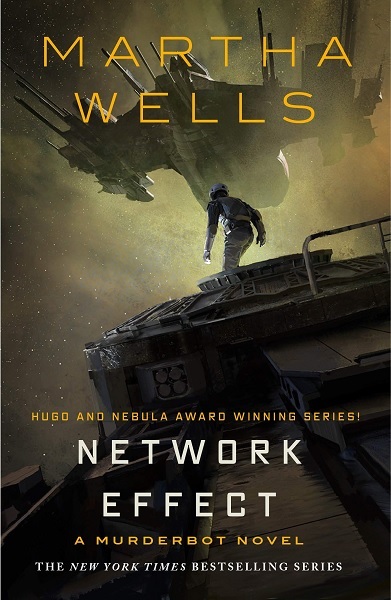
Network Effect by Martha Wells, art by Jaime Jones 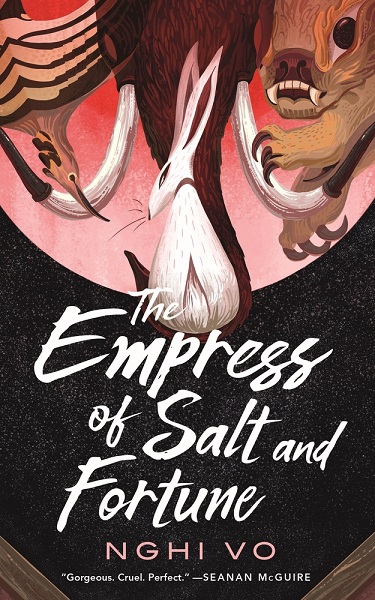
The Empress of Salt and Fortune by Nghi_Vo, art by Alyssa Winans 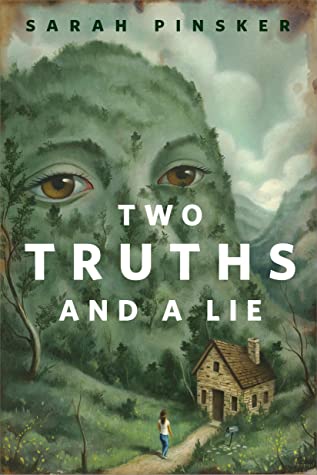
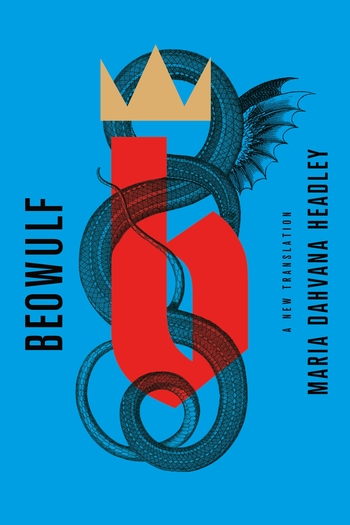
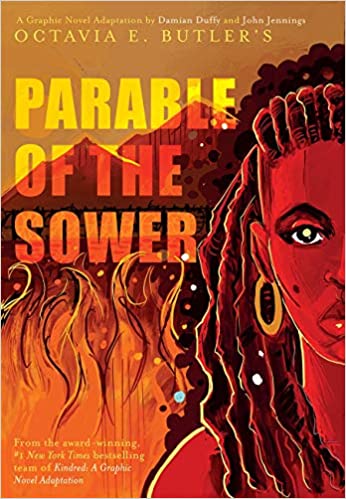


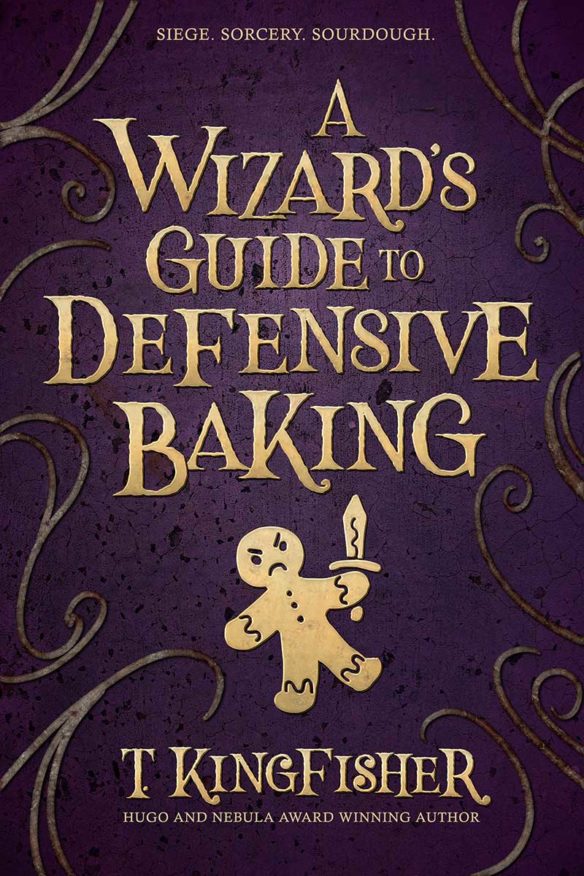
Discover more from File 770
Subscribe to get the latest posts to your email.

As I said above, the consequences of the system were indeed explained. They were understood by many, though not all of the parties. Some folks seem to think I said otherwise. What I debate is what was intended, by which I mean what problem was it all trying to solve. There were arguments as to why the deranking of natural blocs was not so bad a thing, and some people felt that and others did not. And it’s not a particularly terrible thing, but it was, in my view, a side effect of the intended goal (stop organized blocs) and not the intended puropse. The intended purpose was to solve problems like the puppies. It was a very high level intended purpose, for which a wide array of solutions, each with side effects were proposed over the course of a year.
After all the discussion of the side effects, I do not feel it is inapropos to examine them after award data is released.
Brad Templeton: One of the myriad things discussed at the time was whether EPH would interfere with loading up the Best Dramatic Short Form category with Doctor Who episodes. And whether any tears should be shed if it did.
Congrats to the winners.
Like many, I’m in turns pleased and disappointed with the results. But that shouldn’t tarnish their win.
FWIW, incursions from other groups within fandom aren’t likely for the foreseeable future. I try to encourage participation, in accordance with the rules (i.e. no slating). The fallout from 2015 will ensure a less ideologically diverse group of finalists for years to come.
Regards,
Dann
History, in general, only informs us of what bad government is. – Thomas Jefferson
Is the Hugo ceremony available on demand anywhere? It would be a shame for people who missed it not to see the winner speeches. There were some particularly good ones this year.
Diana M. Pho has posted a video and transcript of her Hugo acceptance speech.
Kendall, Thanks for the links. Thanks to all for the interesting discussion.
Not to pick on Martin in particular, but I believe it would be more effective if the observation “Several of this year’s categories are obviously on the boundaries of the ‘safe’ region.” were to be replaced with “In the (fill in the blank) category, the issue is…” I have zero idea which categories Martin had in mind, or what issue he saw with them, and believe we would be better off if we knew.
Mike Glyer: Yes, as noted there was much discussion of liking and not liking the side effects. I don’t believe there was strong consensus on the philosophy outlined of the virtues of the side effects. EPH passed 3:1, the 60 or so people who voted against it did not find virtue in the whole package. There was, nonetheless, over the whole long period leading up to the con, an overwhelming desire to stop slates, with lots of disagreement as to how. As it turned out, the puppies had a slate for 2016 but scaled it back a lot and included some works highly popular outside the puppiesphere on the slates, and their effect on the result was significant, but vastly less than 2015, even under the same Hugo rules. They gave up in 2017, but it’s not clear they were not already giving up. You would have to ask the puppies.
And that settled it. Bloc participation in WSFS votes never happened again. 🙂 (I don’t know if we’ll get a debate on changing site-selection rules to impede the strength of a bloc of supporting members who have never attended a worldcon or not. Even if we do, it would need to be passed in Chengdu if you want it to affect a convention before 2027. If 2025 is not in China, which it might well be if an eastern Chinese city bids for it for voting in Chengdu, this time just on the strength of attending member votes. Of course after 2025, large numbers of Chinese folks will have attended Worldcons, the old barriers not in place to them.)
If that’s a retroactive argument for not passing EPH, my answer is that in our system it takes two years to change the rules. Now that a group has wrecked two years’ worth of Hugos, why would we do nothing, and leave that exploit unaddressed until the next group with an agenda decides to imitate the example.
@kendal
This is what we are debating so just stating it at the start of a post is just turning things into a circulate argument and not getting us any further forward.
Looking at the original paper it is obvious that it is a very good piece of work but it has obviously been done with limited time. In particular it has never been submitted to any journal and therefore never received peer review of its strengths and weaknesses which would have been massively useful to us.
The scope of the paper is protection of a vote against an attack by an slate ot nominations and some tests have been done of that scenario to validate the method.
However there situation we are in is when there is no slate and the algorithm is operating on uncorrupted nomination data. No tests were done of this situation. We don’t have a detailed analysis of the algorithms behaviour in this case but it is a situation that often occurs for processing done by algorithms or electronic hardware. In the absence of a real slate the system will apply itself to random variations, sometimes known as noise, in the input data and may make those random variations larger producing the unexpected results we see.
A ballot with a slate is improved by EPH but a ballot without a slate looks likely to have more randomness put into it which is by definition dangerous. We are using EPH in a situation it was never explicitly designed for and for which it has never been tested (this what I meant earlier by ‘outside the safe zone). We have no idea how how bad this could get because we haven’t looked. We don’t know if this could be fixed somehow within EPH because we haven’t looked. I think the people involved have got themselves into a very unfortunate psychological state where there is a very aggressive reaction to any suggestion of even investigating problems and improvements.
I wouldn’t mind an explanation for these categories, in the least objecting-to-EPH way possible, if anyone has one. I’m sure they make perfect sense! But I am lacking in the sense, and I’m very curious.
PS. My understanding was that EPH was tested with data from previous Puppy-free years before being voted on, wasn’t it? So we already knew what it might look like when there wasn’t a slate.
And the problem is what exactly and what is the suggested solution?
I ask that of both people here arguing that EPH makes a problem, because I don’t get it were the problem is in reality.
A certain kind of randomness is part of the system exspecially in categories that have a low number of nominations. (I don’t know if all of the categorys the Meredith mentioned are in this category but some are)
A few votes difference is also a kind of randomness (in a extreme case if one work gets 1 vote more than another)
In Graphic Story or Comic, Magic Fish has more points than Once and Future V1: Th King is Undead, but points don’t determine which one is eliminated. They only determine which two works are considered for elimination.
Once and Future V1: Th King is Undead was nominated by more people — 24 to 20 — so it became the sixth nominee.
Per Electowiki, it was submitted to the journal Voting Matters and fully peer reviewed and accepted, but the journal folded before the issue was published.
Not that sort of argument at all. Once it was clear people would abuse the system, it clearly had to become resilient against that. Whether EPH or 4/6 was the best way to do that of course had many arguments on both sides. Of the proposals on the table at that meeting, it was likely to be the most effective and was voted for 3:1. My own feeling is that it’s not resilient enough, and in fact no rules change where it takes 2 years for rules to take effect can be. I do think it’s clearly the case that something else neutered the Puppies (perhaps the No Award results or something else) at least to a fair degree. EPH may have finished the job, only they know.
Constitutional amendments are meant to be slow and deliberative, they do not work in an OODA loop against a nimble adversary not constrained by those rules. That’s my view, and it is shared by almost every system of rules and justice in the world (famously expressed in the USA with the phrase that “the Constitution is not a suicide pact”) but not so universally in fandom or at the business meeting. However, that’s a topic for another year and not likely to be resolved in Fandom.
I asked on the DisCon III Facebook group if video from the con would be available on demand, in particular the Hugo Awards ceremony.
An admin just answered me to state this:
Cool beans!
Meredith:
I think I can tackle the question on Best Editor, Long Form. If I get it wrong, I’m sure others will correct me (which is a good thing!). 35 people nominated Toni Weisskopf in this category so her nomination score is 35.
Weisskopf got an initial point score of 32.25, which is only possible if a large number of nominators listed only Weisskopf on their ballots for this category. The last 2 items facing elimination had point scores of 24.08 (Harris) and 23.48 (Evans). Having a point score higher than Harris and Evans kept her out of the elimination rounds altogether, so she never faces elimination.
The same thing happens in Best Editor, Short Form.
Lafferty & Divya have an initial point score higher than several candidates (Williams, Harris, and LMT&MDT) who have lower point scores but more nominations. As each round progresses, Lafferty & Divya’s point score is high enough to keep them out of elimination and so candidates with more nominations but lower point scores face off against each other and get eliminated. And Lafferty & Divya become one of the six finalists, having never faced elimination – much like Weisskopf above.
The original nominating system was blind to the existence of small but passionate groups and the final ballot would reflect only the likes of the majority under normal circumstances. But there was a way that the small group could hijack the entire ballot: by slate or bloc voting.
The new system gives the small but passionate groups a better chance at having one of their favorites on the ballot but prevents them from getting all their favorites on the ballot to the exclusion of others.
In the examples above, a small but passionate group of around 30 people got their favorite (Weisskopf) on the ballot but would have been prevented if they’d tried to get all five of their favorites on the ballot. The same can be said of the small but passionate group that got Lafferty & Divya on the ballot.
@Lorien: So in addition to decreasing the effectiveness of slating, EPH decreases the motivation of a small passionate group to join a slate. Nice.
@Andrew (not Werdna): I think it’s even better than that. It prevents small groups from being discouraged and not participating.
I’ve been part of a small group trying to increase awareness of something I loved. Under the old system, those efforts would not have paid off and I would have gotten discouraged and stopped nominating. Under the new system, my group has a chance to get that one thing on the ballot and in front of the voters. If they like it, they may vote for it. If they don’t, they don’t. Not everyone’s tastes are the same. But at least my group would have had a chance to share our love for some overlooked work even if it didn’t win.
So even with politics (and the Puppies) out of the equation I think EPH is a good thing.
I feel like we are rehashing a lot of the discussion that led to “E Pluribus Hugo”. Maybe it’s because I was part of the lengthy discussions at Making Light & elseweb at the time. There were many discursions & digressions about how it would work, there were worked examples, simulations with pre-Puppy datasets, concerns about edge cases & unintended consequences. Ultimately, we didn’t let perfection be the enemy of good & submitted it to the Sasquan Business Meeting to be voted on (I was one of the sponsors).
Is “E Pluribus Hugo” perfect? No. But it was the best response to slating blocs we could have come up with. And IMHO has stood the test of time. It does what we intended: de-fang slating blocs so they could no longer fill up all the nominations while at the same time allowing narrow-interest groups to have some representation in the final ballot. There were other suggestions put forth, but apart from “E Pluribus Hugo”, only “4 and 6” made it to the Business Meeting.
I remember a few suggesting that the Hugo Admins simply disqualify slate nominations, and other ideas that required a lot more discretionary powers being conferred to the Administrator(s). None of those got any traction.
@Martin Easterbrook: I may have been unclear. I meant nominators’ individual preferences, and I described how it does that.
It’s been “tested” in the years since the Puppies, with live data, in the real world, by existing, then by people comparing to how things would’ve been without EPH (ETA: e.g., the comments on this post!). It’s tough to get a better test than that. Though again, I feel it’s incorrect to compare it as if the previous method were perfect; it manifestly wasn’t, but went unexamined for decades.
ISTR a test with one year of data (ETA: real Hugo data) that someone had the anonymized data for, back in the day, BTW. I may be misremembering/confusing the details, though; no doubt someone else remembers what I’m talking about.
@Soon Lee: Yes, tedious rehashing. 😉 Don’t we go through this almost every year, at this point?
rcade on December 20, 2021 at 1:19 pm said:
This is true for virtual and attending members of DisCon III. The Hugo ceremony will probably be publicly available and remain up.
Well, EPH is up for re-ratification at the Chicon 8 Business Meeting, so we’ll get to rehash it all in person next year!
“Weisskopf got an initial point score of 32.25” on the basis of 35 voters, which works if one voter supported four choices, four voters supported two choices, and 30 voters supported one choice. (That appears to be the only workable combination). The 4-choice voter had his other three choices eliminated — you can tell who they were. The two-choice voters also voted for one of the actual finalists.
@Goobergunch: Noooooooo! 😉 😛
Fun times ahead, eh?
@Kendall: Hopefully by then COVID will have eased sufficiently so as to enable one to munch popcorn at the Business Meeting.
@soon lee
Is all this archived somewhere? It would save a lot of confusion for people who are freshly encountering EPH if it was.
Perhaps. But one must recall it is always “…at the expense of another nominee with more supporters who is removed from the ballot.” So yes, your enthusiastic group can multiply its strength, but I fail to see the virtue in that in removing another nominee who had more supporters but who did not organize, but just naturally appeared on ballots with other widely regarded nominees.
While I was not a fan of algorithmic attempts to defeat the puppies, among them I thought the better solution was to say that, “If whatever system you choose determines a nominee makes the final ballot only through deprecated actions like bloc voting, simply increase the number of nominees on the ballot.” So even if the slate named all 5 finalists, you just had 10 finalists that year. Mildly inconvenient, a bit longer at the ceremony, and a few dicks getting to call themselves Hugo nominee. But rather than having to vote No Award the work of excellence still wins, the works with legitimate support place 1-5, and the attackers find it fruitless. And nobody on a slate against their will is penalized, and mistakes are not very consequential, just an extra nominee. (Instead we bumped every category to 6 so we got extras in every category forever.)
And yes, your dedicated fan group can still push hard and get their idol on the ballot, but not at anybody else’s expense. In reality it is pointless to get on the ballot if you don’t have broad support. It gets you nicer seats at the ceremony and a pin, but if you did it by slate, it also gets a lot of people glaring at you.
So you think eternal ongoing slating and a constantly floating changing number of nominees, forcing vote talliers to be constantly trying to determine whether a slate is organic or forced, that all that nonsense is somehow better than… a fractionally different set of nominees than you would get with FPTP.
I’m not convinced.
I also think that people claiming EPH had no legitimate place in stopping the Puppy efforts just because it wasn’t the only thing that did (“no award” in the final vote also did) and because it was ratified after the pups withered weren’t there. It had an impact. It’s part of the reason they backed off on trying. It was discussed for hundreds to thousands of comments on posts here and at Making Light, all of which are still around in the archives. If you don’t want to bother digging through those two locations because it’s too hard finding all that discussion, you can also try following the many links from the relevant Debarkle chapters. Or just read the Debarkle.
rcade on December 20, 2021 at 11:02 am said:
One of the people who is going to be responsible for editing and doing technical clean-up of the recording is one of the editors of the YouTube Worldcon Events channel. I spoke to him and he knows that it needs to be done, but he was also in the middle of actually working on Worldcon tech.
Some of us had the choice of working on the convention and possibly seeing some of it or working on stuff like making videos for the benefit of people not attending the Worldcon and just watching the videos. In my own case, I spent more time working on editing and uploading the WSFS Business Meeting videos than I did attending those meeting, and if it weren’t for the fact that it can take more than an hour to compile and another hour to upload the videos (plus the time YouTube spends processing them), I wouldn’t have seen much else of the convention at all. Even then it was just a little while in the Exhibit hall.
There have been around 100 people who have watched the Business Meeting videos, which is more than the number of people who attended any of them except for the site selection portion of Saturday’s meeting. Lisa Hayes (who gave up a lot of sleep in order to be there more than an hour before each day’s meeting to make sure the video camera was set up) and I (who did that editing and uploading) are glad that there were that many people out there who cared about this stuff.
Lenora Rose on December 20, 2021 at 7:35 pm said:
I inadvertently wandered into what I take to be a discussion that included the remnants of the same Puppy-influenced thinking in the past few days. It’s clear that many of them still think that No Award was some sort of “cheat” even though it was there all along. Most of them can’t think of anything other than first-past-the-post voting, which is the only sort of “real” election there is in their minds. But they don’t even believe those tallies where No Award won the FPTP vote, because any election they lose is obviously Fake News, and the idea of an election where nobody won goes right over their heads.
Lenora Rose: Yes, I think it’s much easier. For example, you could use EPH as the formula that decides there is slating and which then calculates how many nominees to have. You could have subjective opinion. You could have any other formula which you like. It matters a great deal less which system you use because nobody is bumped off. There is one consequence — when we see more than 5 nominees, we would know there was either a tie for 5th, or somebody triggered whatever system detects slating. We would not be told who, or how, though of course, as in 2015 and 2016 we figured things out.
And no, I don’t say it had no effect. I do say that it was surprising to may that they wimped out in 2016. Many believed while debating EPH and others that we would have to put up with the puppies for 2 years, and it was regrettable, but that whatever we did (EPH) would neuter them by 2017. It was not expected for them to wimp out so much in 2016 IIRC. As to why they did, you have to ask them.
There is a hack of the rules possible that allows an amendment in 2015 to affect the 2016 Hugos because the constitution allows the Hugos to be awarded any time in the year, including 1 hour after the convention that ratified it officially closes and new rules take effect. However, that sort of bending of the spirit of the rules was unlikely to fly. And it was not needed.
@Martin Easterbrook,
I can’t find it anymore. But there is a test of it with anonymized 2015 data mentioned here:
https://file770.com/e-pluribus-hugo-tested-with-anonymized-2015-data/
TL;DR was that EPH would not have worked nearly as well as hoped, but would have provided at least one non-Puppy finalist per category. So there would have been (in principle) at least one non-slate finalist & would have meant the voters would not have had to resort to No Award. That seemed enough to make the Puppies lose interest.
There is a work by Arrow on voting. As I recall, the claim is that in any voting process other than exactly two choices, majority wins, tie resolution exists, something can happen to lead to strange results.
With very large numbers of choices, a straw poll ‘vote for as many as you want, we just add up the votes’ might indicate to people what they want to consider before the nominating ballot shows up. Just for novels, there are well over a thousand a year, so most people will not have read most novels. A way to avoid this challenge is to have a review fanzine that publishes multiple reviews of each of those volumes, but that zine does not exist.
@Brad Templeton, who said: “But one must recall it is always “…at the expense of another nominee with more supporters who is removed from the ballot.” ”
I don’t know who you’re quoting but I don’t think it’s me. No nominee is removed from the ballot by EPH. A candidate does not make it onto the ballot because another candidate qualified instead. The same can be said for a ‘first past the post’ nomination system. Whoever you’re quoting is showing their bias – that certain candidates deserve to be on the ballot and any system that doesn’t result in that candidate being on the ballot is cheating that candidate out of their rightful spot. I don’t agree with that viewpoint. I don’t think any candidate deserves to be on the ballot. I think they are all lucky to be on the ballot.
I notice your assumption that any organized group must be the result of the candidate organizing it (“…I fail to see the virtue in that in removing another nominee who had more supporters but who did not organize”). I don’t think that is always true. Doctor Who fans organize among themselves but neither the BBC, nor the showrunners organize that – it’s naturally occurring fan activity.
You said that you “fail to see the virtue” in a small group getting their fave on the ballot. I think you also failed to see my point. Which is, that over time, when small groups feel unrepresented they leave the community. That results in an ever decreasing, more insular community. Which I see as a terrible outcome. So yes, there is virtue in EPH if it gives voice to small but passionate groups while simultaneously preventing their voice from drowning out other passionate groups within the community. There is virtue in keeping a larger, more varied community engaged and participating.
Goobergunch: Well, EPH is up for re-ratification at the Chicon 8 Business Meeting, so we’ll get to rehash it all in person next year!
Yes, and everyone can look forward to Ben Yalow, Brad Templeton, and Martin Easterbrook being major Drama Llamas about Legal Liability! Danger! Unfairness! Hugo Awards Endorsing Bad Finalists! Stupid WSFS Members Who Don’t Understand What They’re Voting For! in an attempt to torpedo re-ratification, so that the Puppies can have another go at slating the entire Hugo ballot in 2023.
Oh, joy. 🙄
The voting changes implemented in 2017 had little impact on this year’s nominees as far as I can see – except for Best Fan Writer where they ensured the eventual winner was a finalist. That’s a big net positive. They largely do nothing except when they do good.
In fact EPH was tested with non-slated data and Martin Easterbrook was quite wrong (I will avoid use of the L-word) to say that it wasn’t. The same result was found as we’ve seen in the last four or so years: for the overwhelming majority of finalists, the results with EPH are exactly the same as the results with FPTP. The only difference is that the sixth finalist may be someone else — in several cases this year, that just means breaking a tie. In 2015, did a little bit of noise at the bottom of the ballot seem like an acceptable price to pay for increased resilience to organized slating? Damn straight it did. For me at least, it still does.
(And besides which there is a good argument to be made that the “noise” is on the whole a good thing; since it’s already been made in this thread I won’t repeat it.)
Aurrrgh, I was hoping to keep my streak of never going to a business meeting, but maybe will have to just to make sure EPH is passed.
I will need a minder to hit me when I’m supposed to vote, as I tend to space away from bureaucracy. 🙂
Nicholas Whytes 2017 report looked at the impact in detail.
http://www.thehugoawards.org/wp-content/uploads/2017/08/2017-Hugo-report-4-systems-comparison.pdf
@Hampus Eckerman: Sit near me and I’ll poke you. 🙂 If I’m there in Chicago, which there’s a very strong chance I will be.
NOTE: It can also be important to be at the preliminary Biz Meeting, to make sure folks don’t kill the item so it doesn’t get voted on at all.
@JJ: Srsly.
@Camestros Felapton: Truly everything old is new again. 😉
@Kendall: Since it’s a re-ratification, the only thing the Business Meeting can do to it is set the debate time. Similar to the Series and Lodestar items this year.
@Hampus: It should be the first thing on the agenda of the Main Business Meeting, unless business gets rolled over from the Preliminary Meeting.
@Goobergunch: Ah! Good to know, thanks.
I mean, compared to the traditional method of putting the 5 or 6 candidates that appeared on the most nominating ballots, any other system that differs will … differ.
While EPH does change the calculation formula in an approach that a large fraction of fans do not understand, I don’t believe there’s been a change from the overall philosophy that the finalists are to be the works most popular with the members, and the winner the one in aggregate judged best among the finalists. While some people may believe that the goal has changed to make the finalists follow a diversity goal to make sure each subsection of fandom has its chance to get a nominee on the ballot, I would be interested in evidence of consensus on that. There are systems that work that way. Many awards are juried and the jurors can be given goals like looking for undiscovered gems or pushing for variety. It’s not even a bad idea, but I do not think it is the official idea, other than in being a side effect of a complex system which was created to combat slates. I was present in the discussion on Making Light. Yes, people may have felt some of the side effects weren’t so bad, but the goal was 99.9% to fight the puppies.
Understand this does not “cheat” the candidates of anything. To be more correct, it is the fans who are deprived. The 52 fans who supported Nivia Evans for Editor/LF did not get their choice on the ballot, while 35 fans would have gotten theirs instead had Weisskopf not been insulted from the convention, making her withdraw her name. In this case, Evans did not have further support and finished poorly, but it’s not unknown for the last place in nominations to win.
Now I get that Evans’ supporters got other choices of theirs onto the ballot, while TW’s supporters (perhaps deliberately due to the system) did not make other choices. And I get how some might feel that’s a reasonable outcome — and perhaps it is. It’s less clear there is consensus.
The goal of the Hugos is primarily to honour excellence in SF as judged by the fans, I think.
I do not make that assumption, but rather gave one example of how it could happen.
No, I do see what you are saying here. I just don’t see that there is a consensus that the nomination process has this sort of diversity as a goal, or that this has been expressed in some official way or even measured. Perhaps if it were measured most fans would say they like this. Who knows?
For now, I still with the simple goal for the winner, honouring the works that are the most excellent in their category, using the best available measurement of the aggregate opinion of the fans. As it happens, I think that the current voting system doesn’t do that, but it is the traditional way to decide such things, so we use it. Sampling would do this much better (and be robust against puppies) but I know many fans would feel that this was less satisfying even if more accurate. (Republicans feel the same way about sampling for the census and elections in the USA.)
I do agree though that the implied purpose of the nomination system has some elements of what you describe. It is intended to expose works popular among fans at a broad level, so that there can be time to read them before voting so that the final ballot judgment is a little less based on popularity. Indeed, in creating the Hugo packet in a sense, I’ve been a big booster of making that happen. So it’s not that I don’t understand it. I just think if you were to query the typical fan and asked why the nomination system has this complex counting algorithm, the answers would probably be first 1) I dunno. 2) To stop the slates and a very few would say to pull out diverse nominees supported by disjoint subgroups and bring them to light. Even if that’s a good thing.
@Brad Templeton–
Yeah, it’s pretty unambiguous that the primary, perhaps the only, motivating factor, for EPH was to stop the slates from shoving crap down everyone’s throats. That it also lets smaller, passionate groups get something they truly love on the ballot, that others may thereby discover, is just an added side benefit.
Can I suggest that all the factual information referenced here be collected into a single document before the re-ratifacation debate. I think that would save time and heartache in the long run.
The Hugo Awards ceremony can now be seen on Vimeo.
I don’t think a sampling approach makes sense in this case or at least a system for picking finalists based on sampling fan opinions would require a massive make-over of what being a Worlcon member is. Defining the space of opinion to be sampled is not a simple question.
I think “stopping slates” and “allowing a passionate minority to get one nominee” are complementary features of EPH – a passionate minority that couldn’t get any nominees (under the old rules) might be motivated to join a slate with other passionate minorities, resulting in a finalist list that didn’t reflect the preferences of the whole body of nominators (driving them perhaps to counterslate).
But EPH means that those minorities do get what they want. Thus it both reduces the effectiveness of slates, and reduces the reasons that slates might be created.
(I think I said this before upthread, but maybe clearer this time).
The dilemma between voting and sampling is a complex one. Voting measures both the opinion of the populace and also their motivation combined. If your goal is to measure what people care about, and only sample those motivated enough to fill out a ballot, then voting is what you want. But it definitely introduces that bias. Sampling can be done as to reduce that bias. Sampling is not trivial though, and many efforts at it introduce other biases.
That said, in a controlled population it’s not too hard to make sampling random. As long as you allow those picked to explicitly abstain, you can even make responding compulsory, particularly in the electronic world. (Some countries make voting compulsory, some don’t need to, some should.)
Sampling makes coordinated attacks such as puppies a great deal harder. It is no longer enough to be more organized and committed than other voters, you must actually be more numerous. This is harder to do on a nomination style process, but not impossible — though again it explicitly acts to reduce the bias introduced through enthusiasm, which may or may not be what you want in a nomination process.
In straight vote, such as site selection, sampling is a very powerful force against bloc voting. To pick a hypothetical example, if there are 7000 members of an organization, and 2000 of them purchased membership just to vote one way, and voter turnout among the rest is under 40%, a standard vote will go to the bloc of 2000. If the 7000 are sampled and the other 5000 lean 3:1 the other way, the result would be in that other way. Just a hypothetical. In this situation, a campaign effort is much less likely because it’s less likely to work. (In fannish site selection, sampling has an additional challenge because an important part of it that voter enthusiasm is further tested by voting fee, which provides initial funds for the new worldcon.)
Sampling attempts to do its best to measure what the result would be with 100% turnout. If you think that’s the desired result, that’s the way to go. If you think the desired result is to only measure those who care strongly, and to facilitate motivated blocs, then voting, and in particular voting with a fee, is the way to go.
While I have given fannish examples here, this is actually a long and involved area of discussion among voting theorists. Sampling is generally never used in elections even when people believe it would give a much better result because there is a psychological disconnect from the idea that “each person’s vote counts” and franchise as a sacred right. In most political systems, one party would do better under sampling and another under lower turnout, and the latter party always opposes sampling or other things which would increase effective turnout, so it doesn’t happen. Sampling is regarded as one of the best potential counters to voter suppression and other types of vote manipulation, not just bloc voting. This is also true in the census. The scientists at the US census bureau have wanted to sample for a long time, but the constitution says “enumerate” one one party does better under enumeration and so protects it.
Of course when it comes to questions like literary awards or site selection, it is less clear it is an “election” with “one person one vote” and there are strong arguments that it is a measurement and the goal is to accurately measure group opinion, not to have franchise. This depends on whether you view it as “It is my right as a member to directly be heard” vs. “It is my right as a member to have the best effort made to track the aggregate opinion with an equal chance to be heard.”
The reason I was in favor of EPH in the first place was because it did more than just prevent a slate from swamping the ballot. Because it has another benefit regardless of slates. I would like to see it continue. I feel it is overall fairer, that it complements 5 and 6 well (which thankfully got re-ratified early this year), and along with the equally complex final voting system produces generally satisfying results.